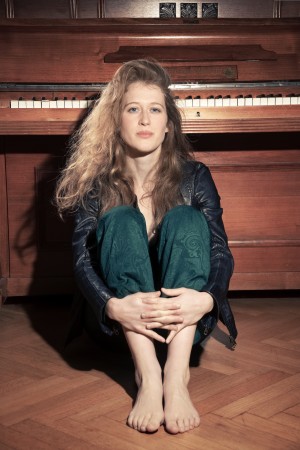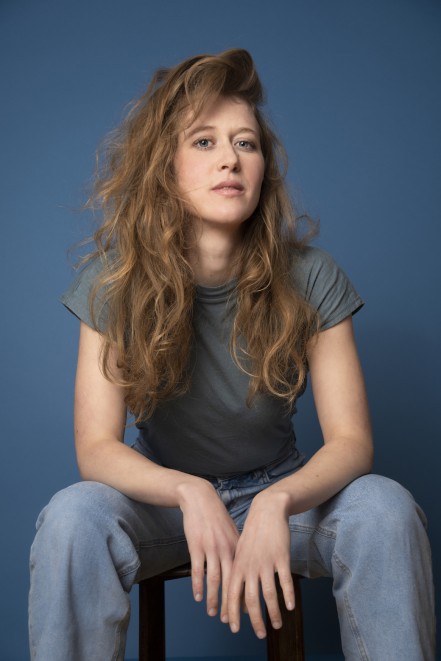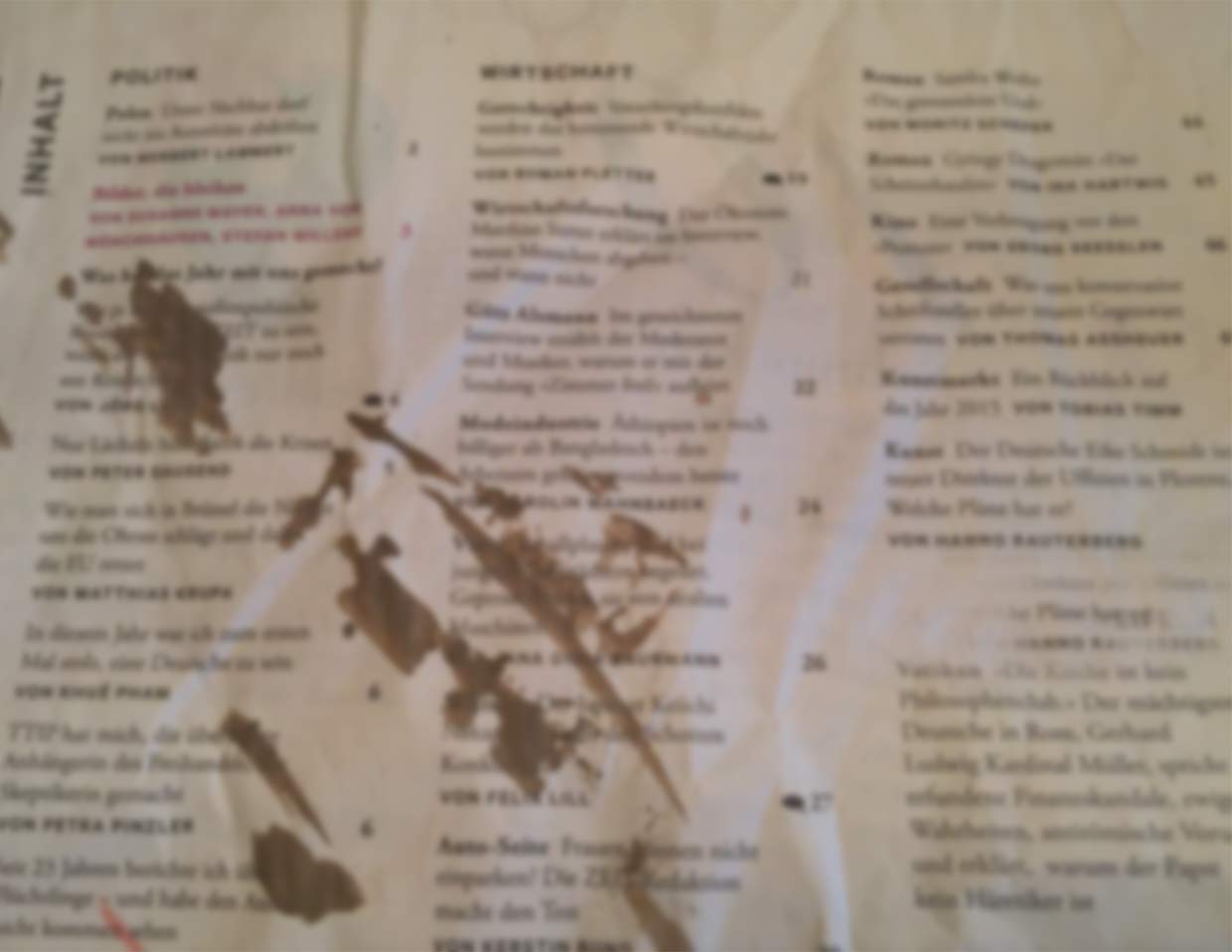Clara Haberkamp
solo
Clara Haberkamp piano

Clara Haberkamp Trio
Clara Haberkamp piano
Oliver Potratz bass
Jarle Vespestad drums
“Trotzig. Sensibel. Lebendig. Unkonventionell. Authentisch. Mutig. Clever.”
Jazzthing
Es gilt als Tugend, Schwächen in Stärken zu verwandeln. Gut so. Die Berliner Pianistin Clara Haberkamp ist aber schon ein Stück weiter, denn in einem beständigen Prozess der Osmose verwandelt sie Stärken längst in weitere Stärken. Nein, das ist kein Paradoxon. Auf einem beständigen Weg der Vervollkommnung geht es der feinfühligen Ton-Poetin nicht um Perfektion, sondern darum, sich auf jeder Station des Weges neu zu erfinden, ohne das Erreichte zu verleugnen. Der jüngste Beleg für diese Maxime ist „Reframing The Moon“, das neue Album des Clara Haberkamp Trios (Malletmuse Records, VÖ August 2021).
Trotz ihrer jungen Jahre hat sich Clara Haberkamp bereits eine außerordentlich markante Handschrift als Komponistin zugelegt. Ausdruckskraft, Seelentiefe und die weltweit vielleicht einzigartige Fähigkeit, produktive Zweifel in sinnlichen Klang zu übersetzen, gehören zu ihrem Markenkern, dem sie sich auf jedem ihrer Alben aus einer anderen Perspektive annähert. Auf „Reframing The Moon“ schlägt sie nun abermals ein neues Kapitel auf. Nie zuvor klang Clara Haberkamp so entrümpelt und aufgeräumt wie in diesen zehn Kompositionen, die über einen Zeitraum von zwei Jahren entstanden sind. Alles, was man von ihr kennt und zu schätzen gelernt hat, ist im Kern noch enthalten, nur extrem gelöst. Für die Pianistin war das ein logischer Schritt. Sie öffnete sich der Improvisation, fokussierte sich voll und ganz auf den Klang des Klaviers und schöpfte die Bandbreite seiner Möglichkeiten aus.
Auf „Reframing The Moon“ widersteht Clara Haberkamp konsequent der Ablenkung von den eigenen Befindlichkeiten, wirft allen Ballast ab und konzentriert sich aufs Wesentliche. Was gesagt werden muss, wird gesagt, alles Übrige darf und soll ungesagt bleiben. Anstatt alle Wege auf einmal zu gehen, wählt sie in jedem Track eine klar umrissene Wegstrecke aus, der sie wie nach einer Landkarte folgt. Sich ihrem Trio auf diesen Spuren anzuschließen, ist wie das Zeichnen einer ganz eigenen Klang-Topografie.

Diese Beschränkung aufs Wesentliche ist keine individuelle Errungenschaft der Bandleaderin, sondern definitiv eine Trioleistung. Der Schlagzeuger ist der ruhende Pol der Troika. Man muss ihn nicht immer hören, um ihn trotzdem in jedem Augenblick zu spüren. Auch Bassist Oliver Potratz strahlt die Ruhe eines hungrigen Routiniers aus, der immer das konkrete Ziel im Auge behält. Wie ein Segler kann er sich weit aus dem vorgegebenen Rahmen lehnen und ins offene Wasser hinaussteuern, ohne jemals das Ufer aus dem Blick zu verlieren. Seine Liebe zum Detail geht weit ins narrative Risiko, ergibt aber im Gesamtkontext mit beeindruckender Zuverlässigkeit immer Sinn. Diese gemeinsam erworbene Gelassenheit übersetzen die drei Mitglieder des Trios in spontane Eleganz und immanente Elastizität. Die Dichte der Intentionen wird am Ende so stark, dass man sich beim Hören gar keine Gedanken mehr machen muss, wer im Trio welchen Anteil am Rausch der Ereignisse hat.
Gibt es ein Synonym für Magie? Zauber, Verve, Kraft, Wucht, Charme … nichts davon trifft auch nur annähernd den beseelten Sog von „Reframing The Moon“. Aber könnte man es in einem oder zwei Wörtern zusammenfassen, gäbe es ja keinen Grund, das Album zu hören. Kraft ihrer unverstellten Emotionalität brauchen Clara Haberkamp und ihre Mitmusiker weder Pinsel noch Worte, um allein durch die volle Konzentration auf den Sound aus ihren Kompositionen Bilder, Gedichte und Choreografien zu machen.
Wolf Kampmann
![]()
Die Pianistin, Komponistin und Sängerin Clara Haberkamp (*1989 bei Unna) lebt in Berlin. In den Jahren 1998 bis 2006 gewann sie mehrmals bei den Wettbewerben „Jugend jazzt“ und „Jugend musiziert“ auf Landesebene. Später war sie auch Pianistin im Bundesjazzorchester (Bujazzo). Von 2009 bis 2013 studierte sie Klavier am Jazz Institut Berlin u.a. bei Hubert Nuss, David Friedman und Greg Cohen. Ihr darauffolgendes Masterstudium im Fach Komposition an der Hochschule für Musik und Theater Hamburg hat sie im Mai 2017 mit der CD-Aufnahme eines eigens für die NDR Big Band komponierten Programmes im Rolf-Liebermann-Studio Hamburg abgeschlossen.
Mit dem Clara Haberkamp Trio konnte sie als Gewinnerin des „Newcomer Awards“ des Festivals „Jazz Baltica“ im Jahr 2011 die erste CD realisieren („Nicht rot, nicht weiß, nicht blau“). In den nachfolgenden Jahren hat sie 3 weitere Alben sowohl in Triobesetzung als auch als Solistin eingespielt. Mit ihrem Album „Orange Blossom“ (Traumton Records) wurde das Trio für den Echo Jazz 2017 in der Kategorie „Newcomer“ nominiert. “Reframing The Moon” erscheint im August 2021 bei Malletmuse Records. Für CASIO Music hat Clara Haberkamp 2019 ihre Komposition „dinner with a nymph“ in einem Werbevideo präsentiert, seitdem arbeitet sie regelmäßig mit CASIO Music zusammen.
Clara Haberkamp lehrt das Fach „improvisierte Liedbegleitung“ an der Universität der Künste Berlin und wurde mit der Lehre für Tonsatz an der Filmuniversität Babelsberg betraut. Seit Sommer 2020 promoviert sie zum Thema „Erweiterte Methoden der improvisierten Liedbegleitung unter Berücksichtigung aktueller Strömungen der Neuen Musik und des Jazz“. Die künstlerisch-wissenschaftliche Promotion wird durch das Programm „Dissertation Plus“ der Claussen-Simon-Stiftung gefördert.
Da ist zunächst der Anschlag von Haberkamp. Klar konturiert und ohne alles sanfte Säuseln setzt sie ihre Akkorde, die das Terrain der romantischen Harmonik nicht verlassen, bis sie in Off-Beat-Phrasierungen des modernen Jazz übergehen. Aber wo auch immer das musikalische Material ihres Spiels herkommt und wie dynamisch sie auch immer ihre Linien oder ihre Akkorde setzt, der Flügel wirkt bei ihr stets so, als habe man die Stahlsaiten durch Darmsaiten ersetzt. Dieser Klangcharakter grundiert ihr ganzes Spiel, als sei jeder Ton imprägniert, mit einer feinen Hülle überzogen, der gegen alle Grobheiten und jegliches unqualifizierte Poltern schützt. Ihr Spiel hat etwas wohltuend Ebenmäßiges, selbst in kraftvollen Phrasen Diskretes, fast möchte man es als einen wunderbar weiblichen Gestus bezeichnen (…). Jedenfalls ist Haberkamp eine großartige, nie durch Virtuosität auftrumpfende Pianistin, mit einem elegisch-lyrischen Sopran, der ein wenig (…) an Joni Mitchell erinnert, nur geradliniger, ohne alles Tremolieren erscheint.
Wolfgang Sandner, FAZ 01/2018
Die Songs führen atmosphärisch am Rande der Kammermusik entlang. Sie erzählen Geschichten des emotionalen Überschwangs, ohne dafür auf melodische Klischees zurückgreifen zu müssen. Es ist keine Musik zum Mitpfeifen, aber auch keine, deren Reibungswärme Schweißperlen evoziert. (…) Alles ist im Fluss und hat doch genügend Nebenarme des Ästhetischen, um harmonisch, strukturell, motivisch immer wieder zu überraschen. Damit baut sich das Clara Haberkamp Trio eine eigene Welt.
Jazzthetik 2016
Die Bürde der großen Namen schüttelt Haberkamp ab wie ein Blatt, das zufällig auf ihren Rücken gefallen ist. Sie ehrt ihre persönlichen Helden (…) indem sie sich von ihnen löst.
Jazzthing 2016
Wenn sich Klavier, Bass und Schlagzeug ihres Trios manchmal traumverloren im Rubato umschweben, schafft sie es nämlich, einen ganz schnell hineinzuziehen in ihre Welt, in der die Musik manchmal nur aus wenigen wohlgesetzten Tupfern besteht. Der Raum zwischen den einzelnen Noten regt die Fantasie ihrer Zuhörer an. Clara Haberkamp ist eine Meisterin des Weglassens. (…) Ohne lange Anlaufphasen schafft dieser Dreier traumwandlerische Atmosphäre. Mal umschleichen sich die Musiker spielerisch, schweben aufeinander zu, neigen zu angenehm verwunschenen Stimmungen, dann wieder langen sie ganz pointiert und rhythmisch gewagt zu. Aus diesem stetigen Wechsel, dem freien Umgang mit Formen und dem Mut zur Reduktion entsteht etwas sehr Reizvolles.
Ssirus W. Pakzad, Jazzthing 2018



